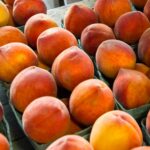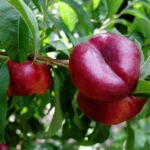Delay expected for Port of Jakarta fruit import closure
The U.S horticultural industry is hopeful the Indonesian Government will delay the introduction of its ban on Port of Jakarta fruit imports, after receiving positive news recently from the United States Department of Agriculture (USDA). 
Northwest Horticultural Council vice president Mark Powers tells www.freshfruitportal.com confirmation has not yet been received in writing from Indonesia, but the USDA has communicated it expects there could be a change to the definitions surrounding the Mar. 19 enforcement date.
"It was previously thought that the March 19 date was for shipment arrivals but what the Indonesian Government is saying now is that it's apparently the shipment date, so as long as produce from the country of origin departs prior to March 19, then they would be allowed into the Port of Jakara," he says.
"This gives an additional five to six weeks of additional time for the product to be on the water and it gives the government time to come up with a better solution, but it does seem like the Indonesian government will go ahead with it.
"It's still a pretty sensitive topic and there have been high level discussions with many governments, and I think the Indonesian government has responded to that; we have to take good news where we can find it."
Australia calls for WTO involvement
Meanwhile, the Australian Government has called on its northern neighbors to declare their regulations with the World Trade Organization (WTO).
A Department of Agriculture, Fisheries and Forestry (DAFF) spokesperson told www.freshfruitportal.com Australia has raised concerns about the regulations with Indonesia "on a number of occassions", at both ministerial and officials level.
"If implemented as drafted, the regulations have the potential to impact on Australian horticultural exports to Indonesia," the spokesperson said.
"Australia is liaising with other affected trading partners on this issue and has participated in joint advocacy to the Indonesian Government on the likely impact of the regulation to horticultural trade.
"Australia has requested that Indonesia notify these regulations to the WTO so that trading partners can provide comments through formal WTO processes. Australia will continue to encourage Indonesia to do so."
Three Indonesian Government gazettes obtained by www.freshfruitportal.com in January show imports of “Fresh Food Originating from Plant”, “Fresh Fruits And/Or Fruity Vegetables” and “Fresh Layered Tuber Vegetables” will be restricted to four entry points, which do not include the country’s major sea port in Jakarta.
The allowed entry points will be the Tanjung Sea Port in Surabaya, the Belawan Sea Port in Medan, the Soekarno-Hatta Airport in Jakarta and the Makassar Sea Port.
"Jakarta's main sea port Tanjung Priok is not included in the ports able to be used for these exports. It is understood that most horticulture imports to Indonesia from all markets enter through this port," the DAFF spokesperson added. 
"In consultation with Australian industry, DAFF is assessing the potential impacts of the regulations on exports of Australian plant products to Indonesia.
"DAFF will continue to work closely with the Department of Foreign Affairs and Trade and Australian industry to make appropriate representations to the Indonesian Government."
The United States Department of Agriculture (USDA) has been in negotiations with Indonesian counterparts to change or delay the move, while the New Zealand and South African produce export industries have also expressed concerns.
In early February, Indonesian Minister Suswono told local press the government remained committed to its plan to limit port entry points for horticultural goods.
"We do not want to see an influx of imported goods to have a negative impact on local crops. Some of the imported products brought pests. It is dangerous. Heightened security is a must," Suswono was quoted as saying in The Jakarta Post.
There has also been local criticism surrounding the move, not just from importers but the provincial government of East Java, citing concerns for local farmers if the Tanjung Sea Port is made into a major horticultural import gateway.
Related stories: U.S. puts pressure on Indonesia over Jakarta port closure plans
Indonesia: Port of Jakarta set to close for fruit imports in March













































